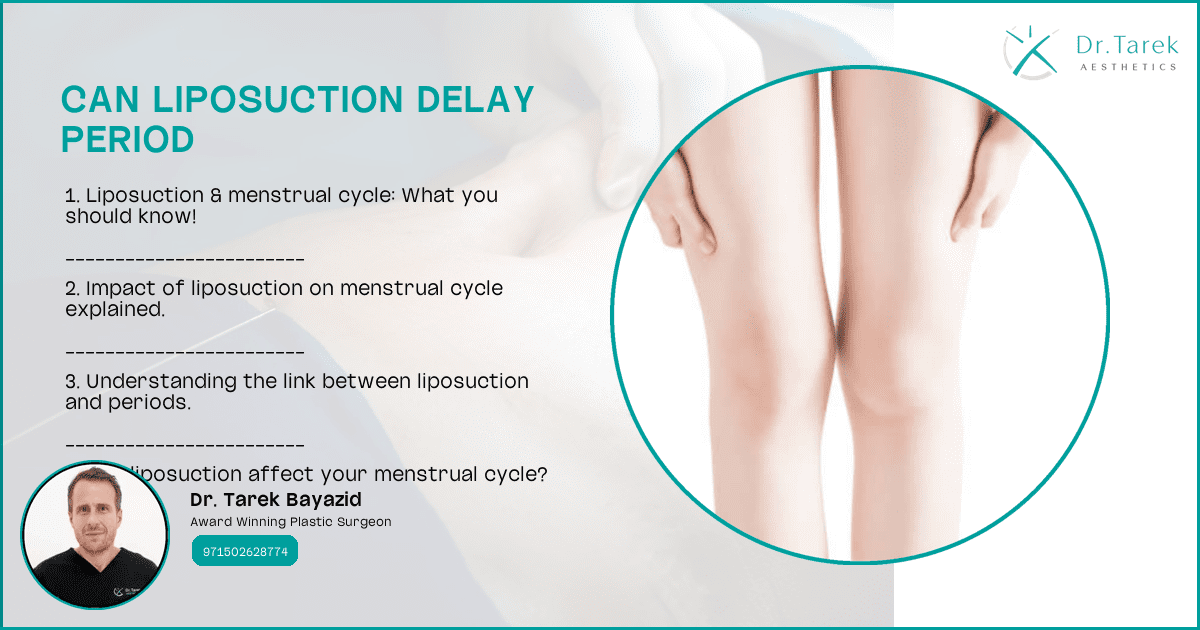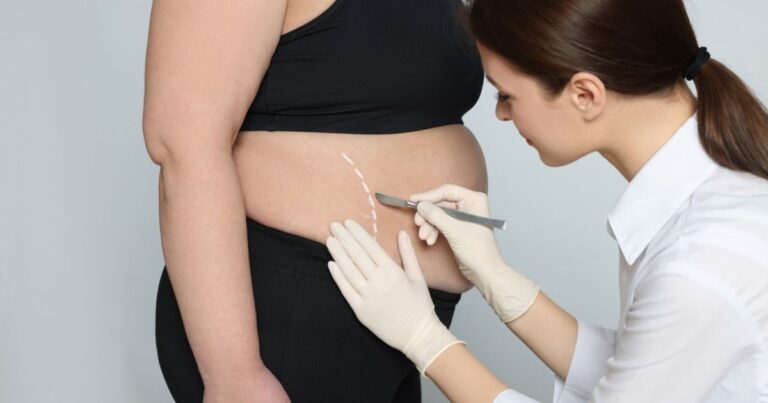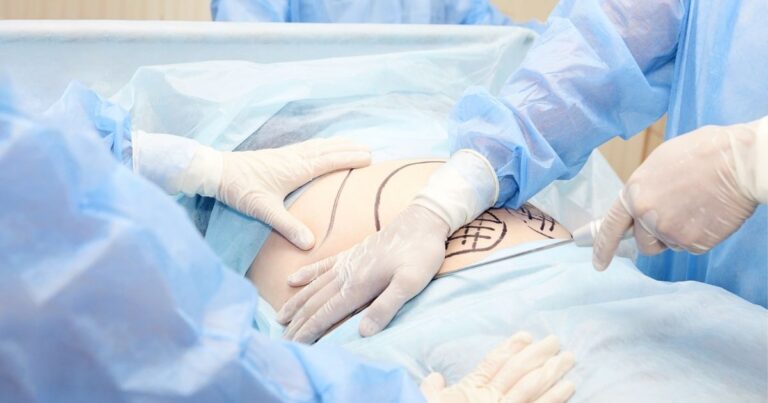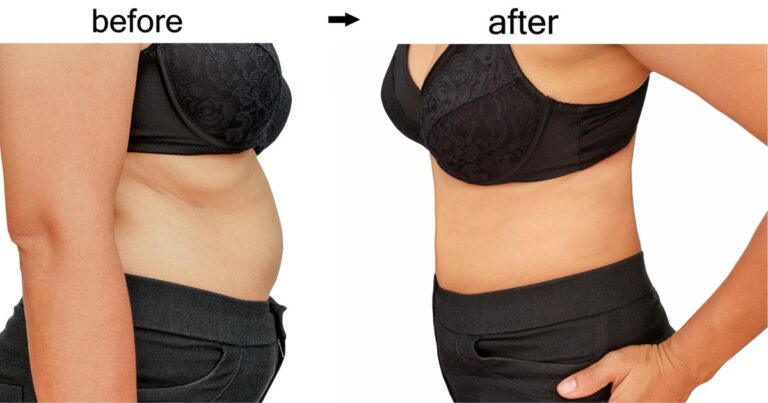Liposuction is a popular cosmetic procedure aimed at removing excess body fat. However, many women wonder if undergoing liposuction can delay their menstrual cycle. This article explores the potential connection between liposuction and menstrual irregularities, providing valuable insights for those considering the procedure.
Understanding the Connection Between Surgery and Menstruation
Surgical procedures, including liposuction, can impact the body in various ways. The stress of surgery, changes in body composition, and recovery processes can all influence menstrual cycles. While not every woman will experience a delay, it’s essential to understand the potential for changes in your cycle post-surgery.
Factors That May Affect Your Period After Liposuction
Several factors can contribute to menstrual irregularities following liposuction. These include the body’s response to stress, hormonal fluctuations, and changes in body fat percentage. Each of these factors can play a role in how your menstrual cycle behaves after the procedure.
- Surgical Stress : The physical and emotional stress of surgery can disrupt hormonal balance.
- Hormonal Changes : Alterations in body fat can affect hormone levels, potentially impacting menstruation.
- Recovery Process : The body’s focus on healing may temporarily shift resources away from regular menstrual function.
How Liposuction Impacts Hormonal Balance
Stress and Its Effect on Menstrual Cycles
Stress is a well-known factor that can disrupt menstrual cycles. The stress associated with surgery, including liposuction, can lead to temporary changes in hormone levels. This disruption can result in delayed or irregular periods as the body adjusts to the stress of the procedure.
Refined Contouring Liposuction is a special way to remove extra fat from the body
it helps shape specific areas to make them look smoother and more defined
Book A Consultation With Dr Tarek Bayazid
Top-rated Plastic Surgeon For Liposuction in Dubai
Installment Plan Available
Changes in Body Fat Percentage and Hormones
Liposuction reduces body fat, which can influence hormone production. Fat cells produce estrogen, and a significant reduction in body fat can lead to hormonal imbalances. These imbalances may cause changes in the menstrual cycle, including delays or irregularities.
- Estrogen Production : Fat cells contribute to estrogen levels, and their reduction can impact hormone balance.
- Hormonal Imbalance : Changes in hormone levels can lead to menstrual irregularities.
- Body’s Adjustment : The body may take time to adjust to new hormone levels post-liposuction.
Common Side Effects of Liposuction on Menstruation
Temporary Menstrual Irregularities
It’s not uncommon for women to experience temporary menstrual irregularities after liposuction. These irregularities can include delayed periods, changes in flow, or skipped cycles. Understanding that these changes are often temporary can help alleviate concerns.
Duration of Potential Period Delays
The duration of menstrual delays post-liposuction can vary. Some women may experience changes for a few weeks, while others might notice irregularities for several months. It’s important to monitor your cycle and consult with a healthcare professional if irregularities persist.
- Short-Term Changes : Many women experience temporary changes in their menstrual cycle.
- Monitoring : Keeping track of your cycle can help identify any persistent issues.
- Consultation : Seek medical advice if irregularities continue beyond a few months.
Preparing for Liposuction and Your Menstrual Cycle
Timing Your Procedure Around Your Period
Planning your liposuction procedure around your menstrual cycle can help minimize potential disruptions. Scheduling surgery during a time when you’re not menstruating can reduce stress and make recovery more comfortable.
Discussing Concerns with Dr. Tarek
Before undergoing liposuction, it’s crucial to discuss any concerns about menstrual changes with your surgeon, such as Dr. Tarek. They can provide personalized advice and help you understand what to expect regarding your menstrual health post-surgery.
- Surgical Timing : Consider scheduling surgery when you’re not on your period.
- Open Communication : Discuss menstrual concerns with your surgeon.
- Personalized Advice : Receive tailored guidance based on your health and needs.
Recovery After Liposuction and Menstrual Health
Post-Surgery Care and Its Impact on Periods
Proper post-surgery care is essential for a smooth recovery and can influence menstrual health. Following your surgeon’s instructions, managing stress, and maintaining a healthy lifestyle can support hormonal balance and help your cycle return to normal.
When to Expect Your Cycle to Normalize
The timeline for menstrual normalization varies among individuals. While some women may notice their cycle returning to normal within a few weeks, others might take longer. Patience and self-care are key during this recovery period.
- Follow Instructions : Adhere to post-surgery care guidelines.
- Healthy Lifestyle : Support recovery with a balanced diet and stress management.
- Cycle Monitoring : Track your cycle to identify when it normalizes.
Managing Menstrual Changes Post-Liposuction
Tracking Your Cycle
Keeping a detailed record of your menstrual cycle post-liposuction can help identify any irregularities. Tracking can provide valuable information for healthcare providers if you experience prolonged changes.
Lifestyle Adjustments to Support Hormonal Balance
Adopting a healthy lifestyle can support hormonal balance and menstrual regularity. This includes maintaining a balanced diet, regular exercise, and stress management techniques.
- Cycle Tracking : Use apps or journals to monitor your menstrual cycle.
- Healthy Diet : Focus on nutrient-rich foods to support hormonal health.
- Stress Management : Practice relaxation techniques to reduce stress.
Long-Term Effects of Liposuction on Menstrual Health
Studies on Liposuction and Menstrual Regularity
Research on the long-term effects of liposuction on menstrual health is limited. However, some studies suggest that changes in body composition can influence menstrual regularity. More research is needed to fully understand these effects.
Potential Benefits for Certain Menstrual Disorders
For some women, liposuction may offer benefits for certain menstrual disorders. Reducing excess body fat can improve conditions like polycystic ovary syndrome (PCOS), which is often linked to weight and hormonal imbalances.
- Research Gaps : More studies are needed to understand long-term effects.
- PCOS Improvement : Liposuction may help manage symptoms of PCOS.
- Individual Variability : Effects can vary based on individual health factors.
Alternatives to Liposuction for Body Contouring
Non-Invasive Procedures and Their Impact on Menstruation
Non-invasive body contouring procedures, such as CoolSculpting or laser treatments, offer alternatives to liposuction. These methods typically have fewer impacts on menstruation, making them appealing options for those concerned about menstrual changes.
Comparing Risks and Benefits
When considering body contouring options, it’s essential to weigh the risks and benefits. Non-invasive procedures may have fewer side effects, but they may also offer less dramatic results compared to liposuction.
- Non-Invasive Options : Consider alternatives like CoolSculpting.
- Fewer Side Effects : Non-invasive methods may have less impact on menstruation.
- Result Comparison : Evaluate the effectiveness of different procedures.
Importance of Post-Liposuction Follow-ups
Monitoring Menstrual Health After Surgery
Regular follow-ups with your healthcare provider are crucial after liposuction. These appointments allow for monitoring of menstrual health and addressing any concerns that may arise.
When to Seek Medical Attention for Menstrual Issues
If you experience persistent menstrual irregularities after liposuction, it’s important to seek medical attention. Prolonged changes in your cycle may indicate underlying issues that require professional evaluation.
- Regular Check-Ups : Attend follow-up appointments to monitor health.
- Address Concerns : Discuss any menstrual changes with your provider.
- Seek Help : Consult a doctor if irregularities persist beyond a few months.
By understanding the potential impacts of liposuction on menstrual health, you can make informed decisions and prepare for any changes that may occur. Always consult with healthcare professionals, like Dr. Tarek, to ensure the best outcomes for your health and well-being.
FAQ’s
Can Liposuction Affect Fertility?
Liposuction itself does not directly affect fertility. However, significant changes in body weight and hormonal balance can influence reproductive health. It’s important to maintain a healthy lifestyle and consult with a healthcare provider if you have concerns about fertility post-surgery.
Is It Safe to Have Liposuction During Your Period?
Undergoing liposuction during your period is generally safe, but it may be less comfortable. Increased sensitivity and potential for heavier bleeding can make recovery more challenging. Discussing timing with your surgeon can help ensure a smoother experience.
How Long After Liposuction Can You Try to Get Pregnant?
It’s advisable to wait until your body has fully recovered from liposuction before trying to conceive. This typically means waiting at least a few months to ensure hormonal balance and overall health are restored. Consulting with a healthcare provider can provide personalized guidance.








